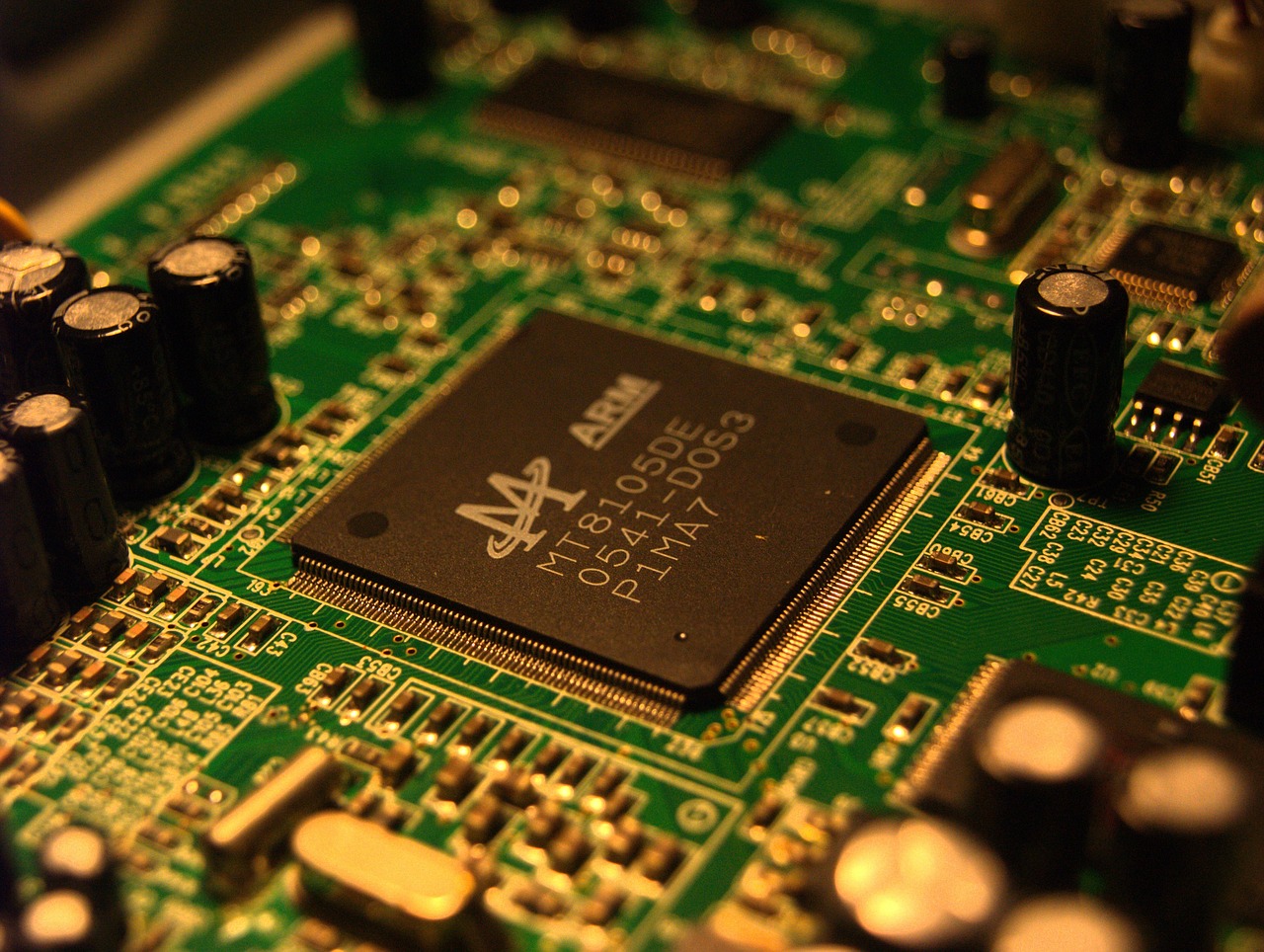Quantum computing is a revolutionary field that holds immense potential for transforming various industries. With its ability to process vast amounts of data and solve complex problems at an unprecedented speed, quantum computing is set to revolutionize the way we approach computation. However, delving into the world of quantum computing can be overwhelming, especially for beginners. In this article, we will provide you with the one quantum computing tip that you shouldn't be without, giving you a solid foundation to embark on your journey into this exciting field.
Quantum computing represents a paradigm shift in computing, promising unprecedented computational power that could revolutionize fields such as cryptography, drug discovery, optimization, and machine learning. To make the most of this emerging technology, it's essential to understand the fundamental principles behind quantum computing.
Quantum Computing
Quantum computing is a fascinating field that is set to revolutionize the world of computation. It is based on the principles of quantum mechanics, which is a branch of physics that explains the behavior of matter and energy at the smallest scales. Unlike classical computers that use bits to process information (where each bit can be either a 0 or a 1), quantum computers use quantum bits, or qubits, which can exist in multiple states simultaneously.
The concept of quantum superposition is at the heart of quantum computing. Superposition allows qubits to be in a combination of 0 and 1 states at the same time. This unique property of qubits enables quantum computers to perform multiple calculations simultaneously, leading to exponential speedup in certain types of problems.
Another important aspect of quantum computing is entanglement. Entanglement occurs when two or more qubits become interconnected in such a way that the state of one qubit is directly related to the state of another, regardless of the distance between them. This phenomenon enables quantum computers to perform highly complex calculations by exploiting the correlations between entangled qubits.
Quantum algorithms are specifically designed to leverage the power of quantum computers. These algorithms can solve certain problems much faster than classical algorithms. For example, Shor's algorithm is a quantum algorithm that can factor large numbers efficiently, which has significant implications for cryptography. Grover's algorithm is another quantum algorithm that can accelerate database searching.
However, quantum computing faces challenges due to the fragile nature of qubits. They are sensitive to noise and environmental disturbances, which can cause errors in calculations. Therefore, error correction techniques are crucial for maintaining the integrity of quantum computations.
In terms of hardware, quantum computers can be built using various physical systems such as superconducting circuits, trapped ions, or topological qubits. Researchers and technology companies are actively working on developing scalable and fault-tolerant quantum hardware to overcome the current limitations.
To facilitate programming and experimentation, specialized software and tools are being developed for quantum computing. Quantum programming languages such as Qiskit, Cirq, and Forest provide interfaces for writing quantum algorithms. Quantum simulators and cloud-based quantum computing platforms allow researchers and developers to test and run quantum programs without direct access to physical quantum computers.
Quantum computing also has implications for cybersecurity. As quantum computers become more powerful, they have the potential to break many of the encryption methods currently used to secure sensitive information. This has led to the exploration of quantum-resistant cryptographic algorithms that can withstand attacks from quantum computers.
The Quantum Bit (Qubit)
The quantum bit, or qubit, is a fundamental unit of information in quantum computing. While classical computers use bits to represent information as 0s and 1s, qubits take advantage of the principles of quantum mechanics to exist in a superposition of states.
A qubit can be in multiple states simultaneously, thanks to the concept of quantum superposition. This means that a qubit can represent both 0 and 1 at the same time, as well as any combination of those states. This unique property gives qubits their computational power and distinguishes quantum computing from classical computing.
The qubit's ability to exist in superposition allows quantum computers to perform calculations in parallel, providing exponential speedup for certain types of problems. By manipulating the state of qubits and applying quantum operations, quantum algorithms can explore multiple possibilities simultaneously and converge on the correct answer much faster than classical algorithms.
Another key concept in quantum computing is entanglement. Entanglement occurs when multiple qubits become correlated in such a way that the state of one qubit is dependent on the state of another, regardless of the physical distance between them. Entangled qubits can be entwined in a manner where the measurement of one qubit instantly determines the state of the other qubit, even if they are light-years apart.
Entanglement plays a crucial role in quantum computation, enabling quantum computers to perform complex calculations more efficiently. It allows for the creation of powerful quantum algorithms, such as those used for factoring large numbers and searching databases with a speedup over classical approaches.
However, qubits are extremely delicate and prone to errors caused by environmental disturbances. Interactions with their surroundings can lead to decoherence, causing qubits to lose their quantum properties and become classical bits. To overcome this challenge, error correction techniques are employed to protect the fragile quantum information and ensure the accuracy of quantum computations.
In practical implementations, various physical systems can be used to realize qubits, such as superconducting circuits, trapped ions, or topological qubits. Each qubit technology has its own advantages and challenges, and researchers are continually striving to improve qubit performance, coherence times, and scalability.
Quantum Superposition and Entanglement
Quantum superposition allows qubits to exist in multiple states simultaneously, exponentially increasing the computational power of quantum computers. Another important concept is entanglement, where two or more qubits become interconnected in such a way that the state of one qubit is directly related to the state of another, regardless of the distance between them.
Quantum Algorithms and Applications
Quantum algorithms, such as Shor's algorithm for factoring large numbers and Grover's algorithm for searching databases, have the potential to solve problems that are intractable for classical computers. Quantum computers also show promise in optimizing complex systems, simulating quantum phenomena, and accelerating machine learning tasks.
The Importance of Error Correction
Quantum systems are susceptible to errors due to the delicate nature of qubits. Quantum error correction techniques are crucial for maintaining the integrity of quantum computations and ensuring reliable results. Overcoming the effects of noise and errors is one of the significant challenges in quantum computing.
Quantum Computing Hardware
Building a quantum computer requires overcoming numerous technical challenges. Quantum computers use physical systems, such as superconducting circuits, trapped ions, or topological qubits, to realize qubits. Researchers and tech companies are making remarkable progress in developing scalable and fault-tolerant quantum hardware.
Quantum Computing Software and Tools
To harness the power of quantum computing, developers need specialized software and tools. Quantum programming languages, such as Qiskit, Cirq, and Forest, provide an interface for writing quantum algorithms. Quantum simulators and cloud-based quantum computing platforms allow users to experiment with quantum algorithms without needing access to physical quantum computers.
Quantum Computing and Cybersecurity
Quantum computing has significant implications for cybersecurity, particularly in the realm of encryption and data protection. As quantum computers continue to advance, they pose a potential threat to the security of classical cryptographic algorithms that currently safeguard sensitive information.
One of the most notable algorithms vulnerable to quantum attacks is the RSA (Rivest-Shamir-Adleman) algorithm, which is widely used for secure communication and encryption. RSA relies on the difficulty of factoring large numbers into prime factors to ensure the security of encrypted data. However, Shor's algorithm, a quantum algorithm specifically designed for factoring large numbers efficiently, could potentially break RSA encryption.
If a large-scale, fault-tolerant quantum computer becomes a reality, it could render many of the encryption methods in use today obsolete. This presents a pressing need for the development of quantum-resistant cryptographic algorithms that can withstand the computational power of quantum computers.
Research efforts are underway to explore and design post-quantum cryptographic algorithms that can provide robust security against quantum attacks. These new algorithms aim to leverage mathematical problems that are believed to be resistant to quantum algorithms, ensuring the confidentiality and integrity of data even in the presence of quantum computing capabilities.
Standardization bodies and cryptographic experts are actively engaged in evaluating and selecting post-quantum algorithms to replace current cryptographic standards. The goal is to ensure a smooth transition to quantum-resistant encryption methods as quantum computers become more powerful and widespread.
Additionally, quantum computing can also have a positive impact on cybersecurity. Quantum technologies, such as quantum key distribution (QKD), offer the potential for secure communication channels that are resistant to eavesdropping. QKD leverages the principles of quantum mechanics to enable the secure exchange of cryptographic keys, ensuring the confidentiality and authenticity of data transmission.
Quantum Computing Challenges
Despite the immense potential of quantum computing, several challenges must be addressed. The delicate nature of qubits, the need for error correction, the scalability of quantum systems, and the development of robust quantum algorithms are among the critical challenges that researchers and engineers are working on.
The Future of Quantum Computing
The future of quantum computing holds great promise. As technology advances and quantum computers become more accessible, we can expect groundbreaking advancements in various fields. Quantum computing has the potential to revolutionize industries, solve complex optimization problems, accelerate scientific discoveries, and unlock new insights into the fundamental workings of the universe.
Quantum computing is an exciting and rapidly evolving field that has the potential to transform our lives. By understanding the fundamental concepts of quantum computing, you can gain insights into the power and possibilities that lie within this cutting-edge technology. As quantum computing continues to progress, it is crucial to stay updated on the latest advancements and embrace this transformative technology.





 English (US) ·
English (US) ·